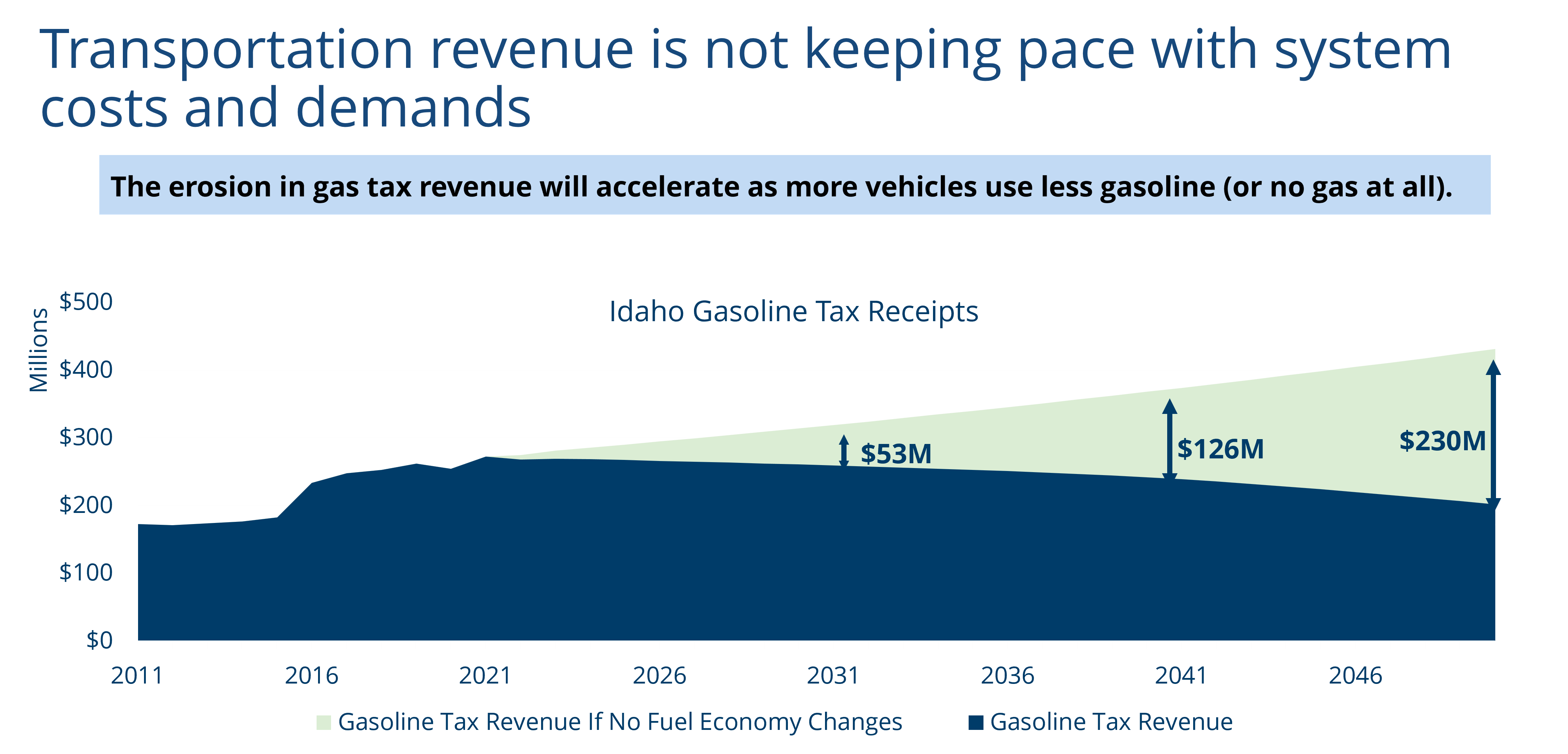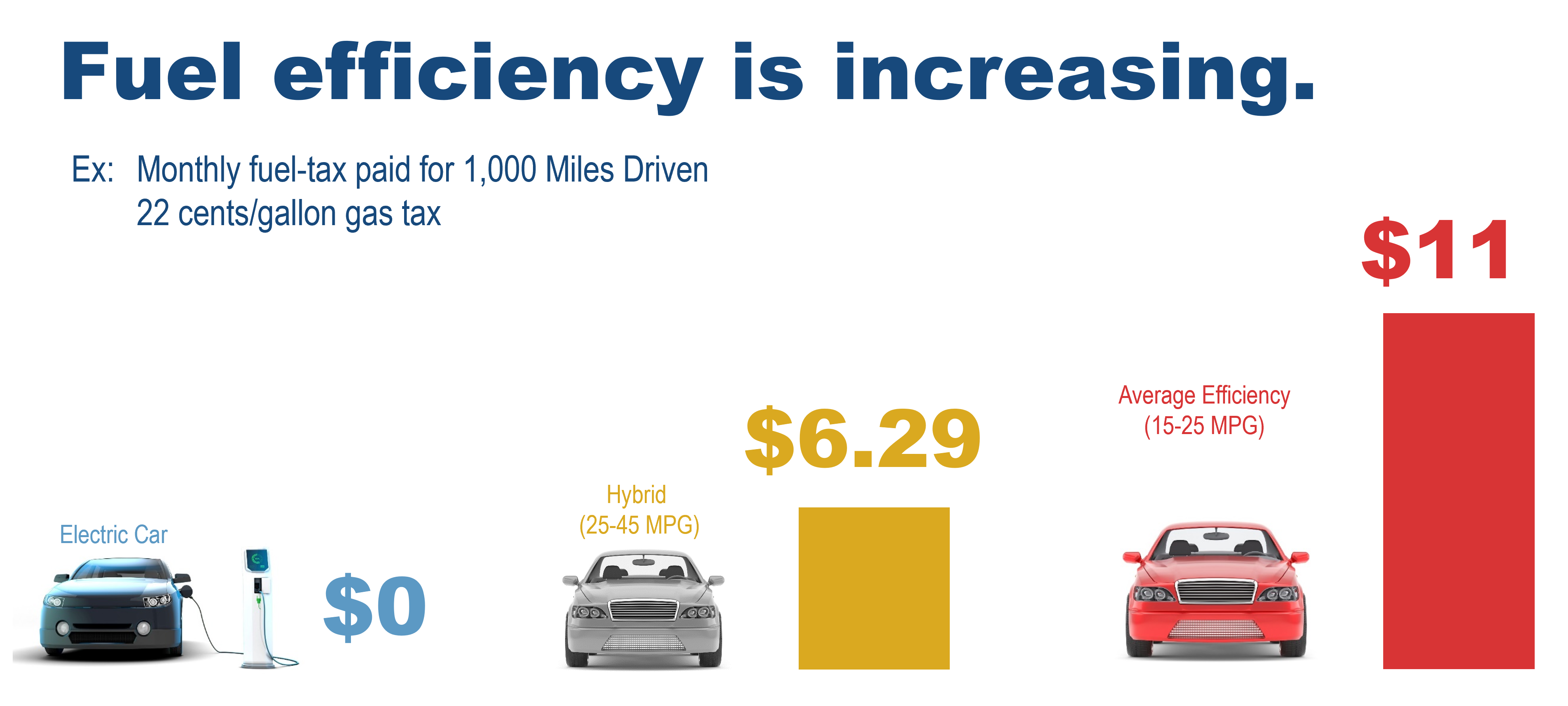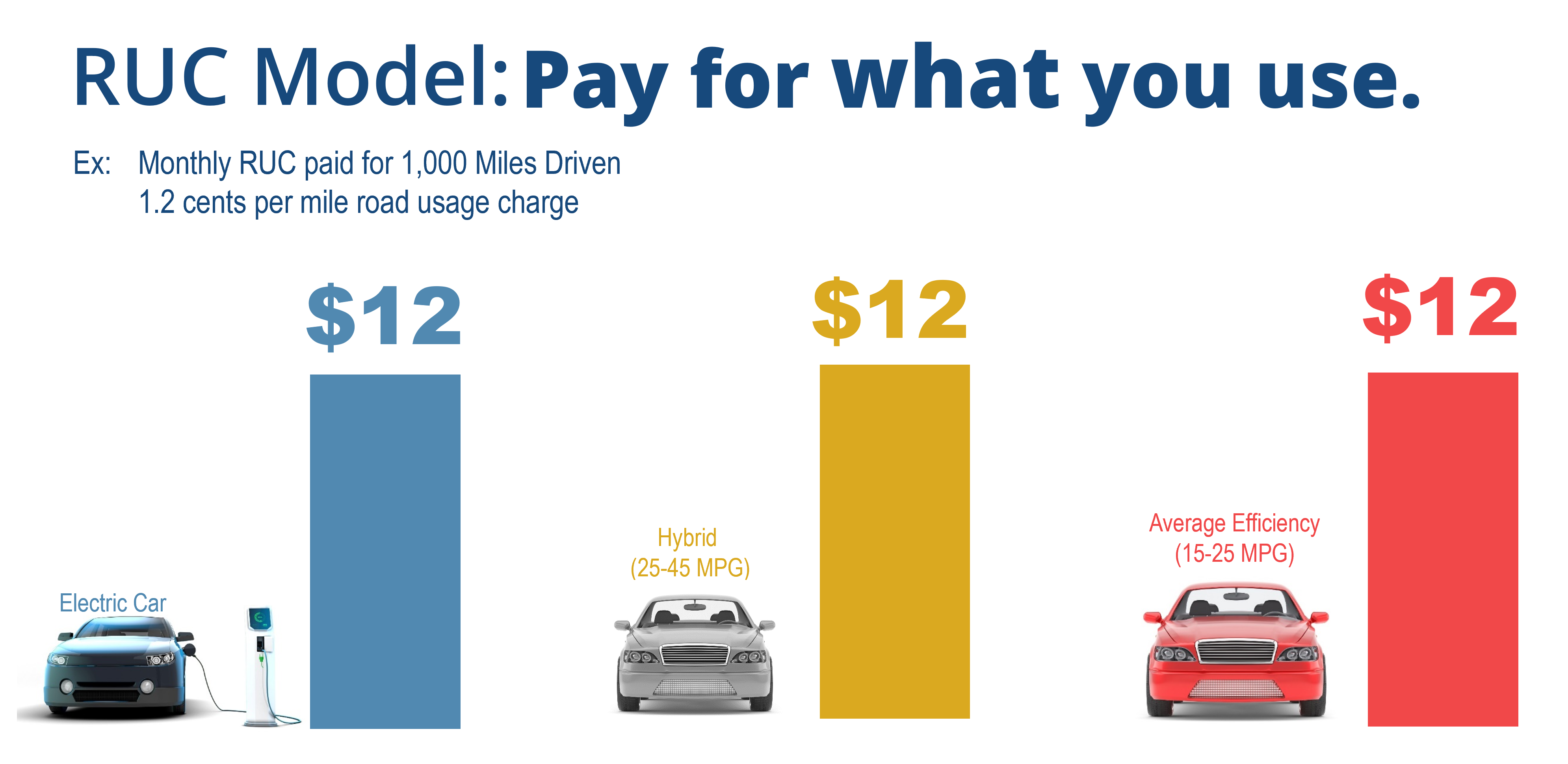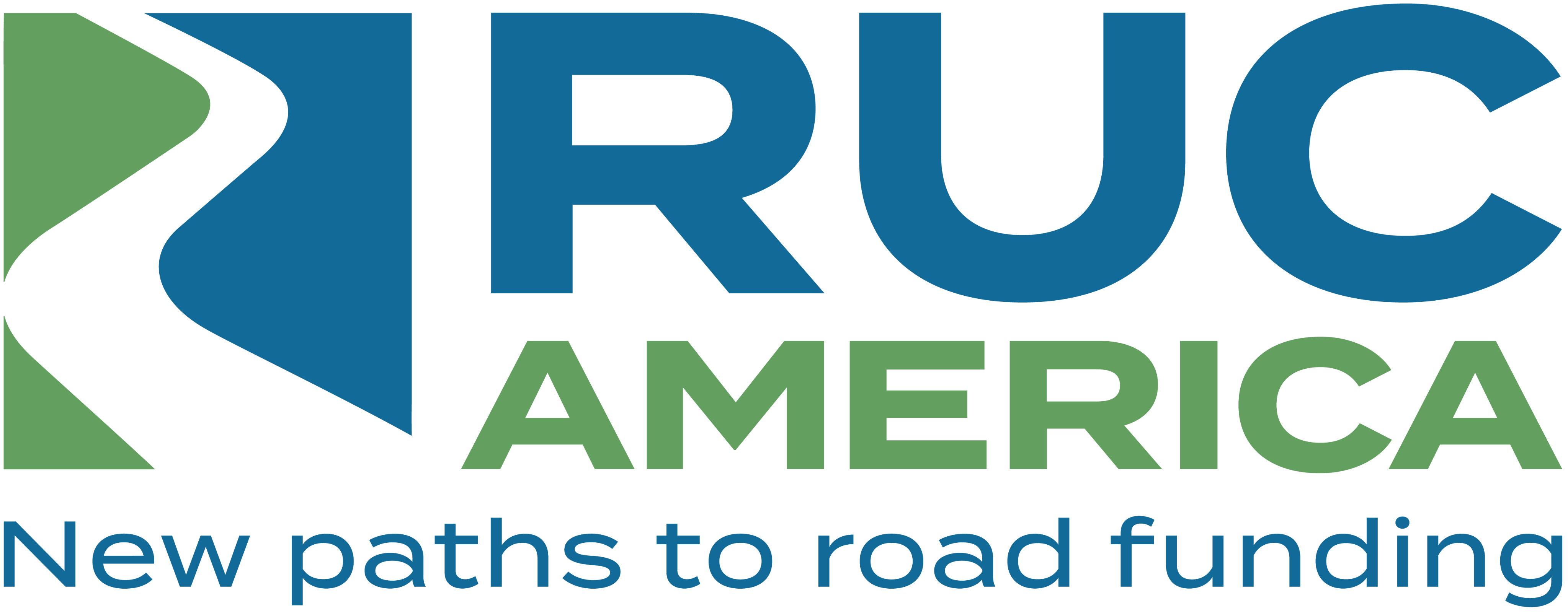The State of U.S. Transportation Systems
Our state and federal transportation systems are at a critical crossroads. Current revenue streams—primarily from fuel taxes—are no longer sufficient to preserve and maintain existing infrastructure, undertake measures to reduce traffic congestion, or improve service levels.
The fuel taxes, once a reliable funding source, are now outdated and increasingly ineffective. As vehicles become more fuel-efficient and as EV sales continue to increase, revenue derived from fuel taxes continues to decline, leaving a growing gap in transportation funding.
This challenge has prompted many states to explore alternative, more sustainable funding solutions. Because it is directly tied to the miles driven, rather than the amount of fuel consumed to travel a distance, RUC represents a much more equitable and sustainable long-term funding mechanism.

The RUC Value Proposition
- An equitable and sustainable long-term funding mechanism regardless of vehicle fuel efficiency or the type of fuel used.
- An alternative funding mechanism to support road maintenance and new construction that provides revenue stability.
- A solution with adaptability to new technology advances for reporting miles driven and ability to control data and privacy.
- A user fee (like the gas tax) but applied to all vehicle types.
- Simplifies revenue collection and administration.


